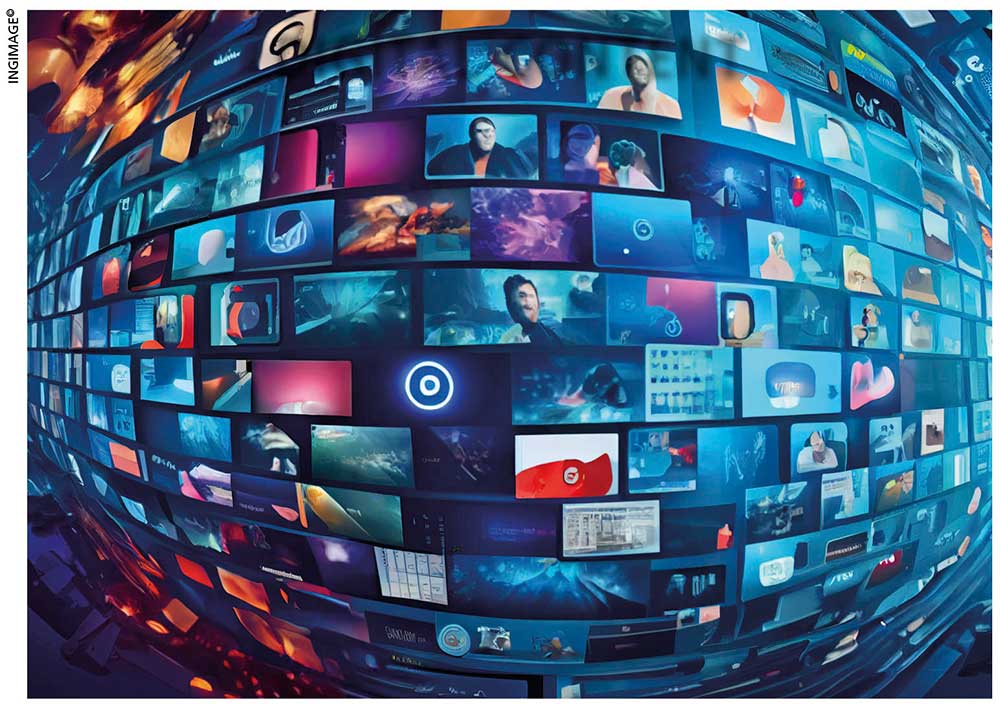DIGITAL CONTENT

ONLINE CONSUMPTION RULES
Ruwandi Perera stresses the need for conscious intakes of digital content

Are you easily convinced? If you think you are, maybe it’s time to hit the brakes… and stop and smell the #$%@. And if you think you aren’t, be extremely sure.
We’ve always been curious but to what extent do we question something – especially when it has images, videos, numbers and ‘proper’ information?
Recently, yours truly was spellbound to hear from two family members about a real life Top Gun moment – an aeroplane with malfunctioning landing gear being saved by a truck on the tarmac.
The story was awe-inspiring and the storytellers were convinced beyond question. They saw it on video, after all! Yet, it took a simple Google search (‘fact check regarding plane landing on truck’) to disprove the story. It was in fact a Nissan Frontier advertising campaign from back in 2011!
In an era where content rules the world and digital platforms have overtaken mainstream media – and even the good old grapevine – critical consumption is of paramount importance.
We need to ask ourselves a lot of questions before believing what we’ve read, seen or heard. How authentic is it? How accurate are the facts? And how original is the content?
Moreover, we need to ask ourselves more serious questions – like how critical our decision-making criteria are to assess the meaning behind the message and how smart we are at separating fact from fiction.
Why?
Because everything we do (from electing a country’s leadership to choosing a restaurant to dine at) is done on the basis of content that we consume online – and because it’s not too difficult to create fake content these days.
Have you ever seen something that was too good to be true?
Well, it probably was!
From simple wrongs – such as fake news, misleading headlines and manipulation of the truth, to more complex wrongdoings like deepfakes, sock puppets and AI generated images – misinformation and disinformation are everywhere!
And these are not merely used to get a few laughs from friends on a WhatsApp group but to overthrow governments, lure people into online scams and even create wars that tear people apart.
In theory, critical consumption is about consciously choosing to buy or not buy a product or service based on one’s ethical, political and environmental beliefs.
But in terms of digital content – be it on social media, WhatsApp groups, emails or websites – critical consumption is all about being smart, savvy and mindful in distinguishing authentic content from synthetic substance.
Apart from being able to check facts for yourself (it will only take a few Google searches and perhaps a couple of minutes of your time to verify any information you find), understanding algorithms is key!
Have you ever felt special when you see content that seems like it was made for you? Or seen a credit card promotion from a Thai restaurant when all you were dreaming of was red curry chicken in recent days?
Coincidence? A blessing from the internet gods? Destiny?
Think again…
If explained simply, algorithms are the rules and signals that govern the internet including social media platforms. These rules are prompted by our online behaviour – i.e. what we click, watch, like and share… and even skip over. Algorithms select, filter, rank and recommend content, thus influencing what we consume online.
The result is you seeing exactly what you want to see.
For example, if you liked a few Gordon Ramsay videos (guilty!) or even if someone shared some of them with you recently, your Instagram homepage will be filled with the star chef, and his bicycle, restaurants and family – and even his latest road trip.
Now imagine the repercussions of more serious searches involving political persons, businesses and brands, and social movements.
Algorithm awareness is essential to stop your social media feed from being provoked. The easiest way to break an algorithm that you don’t like is to actively influence it. If you’re seeing more things that you don’t want to see, search for content that you’d prefer and fix your feed!
When it comes to digital content, seeing is definitely not believing – and we can’t blame anyone for feeding us misinformation. In this digital age, we must take responsibility for our own media consumption. For starters, take everything with a pinch of salt.




Leave a comment